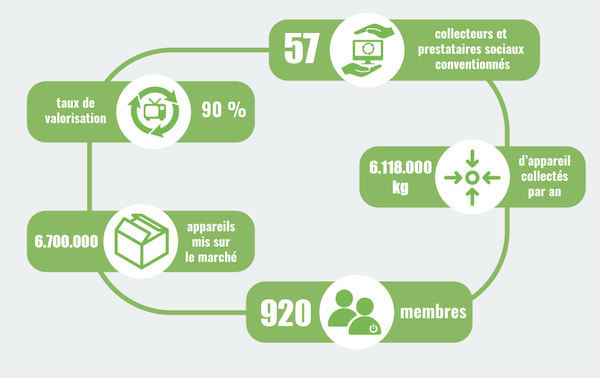 Credit: Ecotrel ASBL
Credit: Ecotrel ASBL
Luxembourg’s Environment Agency has announced that Ecotrel ASBL is launching an awareness campaign on "hoarding", set to begin on Thursday 20 February 2025.
Ecotrel is a Luxembourg-based non-profit organisation responsible for managing the collection, recycling and proper disposal of waste electrical and electronic equipment (WEEE) in the country.
According to the Environment Agency, a recent survey revealed that 72% of residents have at least one unused electrical or electronic device at home. Topping the list, with 52%, are telecommunication devices such as smartphones, computers and tablets. Other accumulated devices include small kitchen appliances, small Hi-Fi equipment and television or computer screens. Although not in use, most of these devices remain functional. "They contain valuable materials such as gold, silver and copper, whose recovery helps preserve natural resources and reduce the ecological footprint linked to their extraction," stated the Environment Agency in a press release.
The campaign organisers also offered advice on how to avoid electronic waste:
- buy fewer devices: share or borrow rarely used devices to minimise the resources needed for their production;
- repair devices: use professional repair services available on platforms such as repair&share by SuperDrecksKëscht, or participate in repair cafés around the country. Some municipalities offer a "repair bonus" to subsidise repair costs.
Residents wishing to dispose of old electronic and electrical devices have several options:
- all devices can be dropped off for free at resource centres. Reusable devices can be managed under the ReUse social project set up by Ecotrel, which incorporates devices into the usage cycle through social repair services such as Nei Aarbecht and Digital Inclusion ASBL;
- small household appliances, such as hairdryers and coffee machines, can be handed over at the mobile collection points by SuperDrecksKëscht fir Bierger;
- large electronics stores accept electrical and electronic waste, as well as batteries. However, only 35% of residents are aware of this option, according to the survey.
Regarding batteries, accumulators and cells, the study indicated that most accumulated and unused devices still contain batteries that are ready for use. Non-functional batteries can be dropped off at resource centres, during mobile collections by SuperDrecksKëscht or in many shops.
IK








